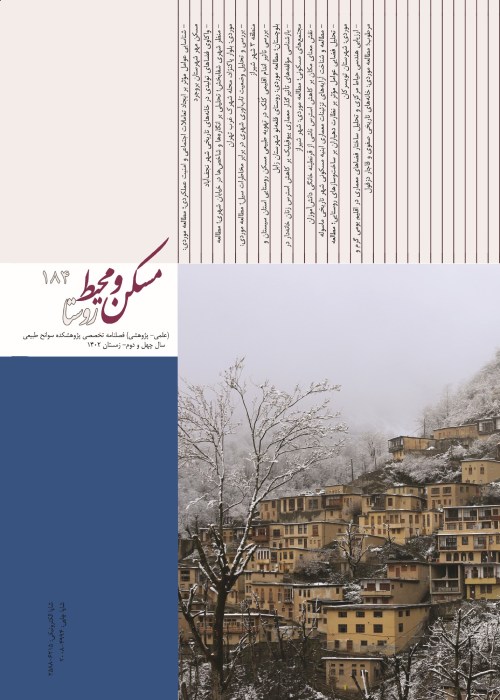Impacts Assessment of Transformation of Rural Settlements to Urban ones in Development of Mountainous Regions, Using Grounded Theory Method (Case Study: Dailaman District, Siahkal Township)
Abstract:
In most developing countries, Planners’ tendencies towards spatial decentralization, reducing regional disparities and urban-rural dichotomy, have led to different urban strategies in recent decades. One of the most important strategies is the transformation of villages to towns to strengthen them. This policy is based on the general assumption that small towns can contribute to the national, regional and local developments. However the beneficial role of small towns should not be generalized to regional developments. Their roles and functions need to be understood within the wider context of urban systems, regional, national and international policies. In Iran, during the late half century, one of the effects of urbanization on spatial and population structure is the increasing growth of the number of towns through transformation of villages to towns because there is a positive prospect about the role of transformation of villages to towns in regional and local development. This research by relying on the study in Dailaman district is going to assess the transformation of villages to towns in mountainous regions from dimensions like economic prosperity, improvement of social and cultural indicators and promoting physical and environmental conditions. The type of research is applied, its paradigm is qualitative and its method is Grounded theory method. Required information was collected through the library and field studies. Field research has been conducted using the method of grounded theory. The sample size included 14 local informed people who were selected by the snowball method. Data collection process was accomplished with semi-structured interview. This process was continued up to the theoretical saturation. After data collection, they were categorized and analyzed with the application of coding system. First of all, open coding, then axial coding and finally selective coding were used respectively. This information were completed and adjusted with recommendation received from experts’ panel. The results of the grounded theory show that transformation of villages to towns has not had much success in employment, land and housing, economic interactions, administrative and managerial issues, tourism and spending leisure time, infrastructural and welfare facilities, and Environmental issues. So the results of this research imply the failure of transformation of villages to towns in regional development. The results of this research are in conformity with the findings of Bajracharya in Nepal (1995) and Sarayee and Eskandari Sani in Iran (2007). They also concluded that these towns haven’t been successful in obtaining their objectives. Although the transformation of village to town hasnt been successful to gain itsobjectives in the studied region; but it is inevitable for some villages which gain the conditions of being towns for having specific population. So it is necessary to make guidelines and criteria for the transformation of villages to towns. These guidelines and criteria should be flexible and in accordance with regional conditions and tendencies.
Keywords:
Language:
Persian
Published:
Housing And Rural Environment, Volume:33 Issue: 145, 2014
Page:
95
magiran.com/p1270445
دانلود و مطالعه متن این مقاله با یکی از روشهای زیر امکان پذیر است:
اشتراک شخصی
با عضویت و پرداخت آنلاین حق اشتراک یکساله به مبلغ 1,390,000ريال میتوانید 70 عنوان مطلب دانلود کنید!
اشتراک سازمانی
به کتابخانه دانشگاه یا محل کار خود پیشنهاد کنید تا اشتراک سازمانی این پایگاه را برای دسترسی نامحدود همه کاربران به متن مطالب تهیه نمایند!
توجه!
- حق عضویت دریافتی صرف حمایت از نشریات عضو و نگهداری، تکمیل و توسعه مگیران میشود.
- پرداخت حق اشتراک و دانلود مقالات اجازه بازنشر آن در سایر رسانههای چاپی و دیجیتال را به کاربر نمیدهد.
In order to view content subscription is required
Personal subscription
Subscribe magiran.com for 70 € euros via PayPal and download 70 articles during a year.
Organization subscription
Please contact us to subscribe your university or library for unlimited access!



